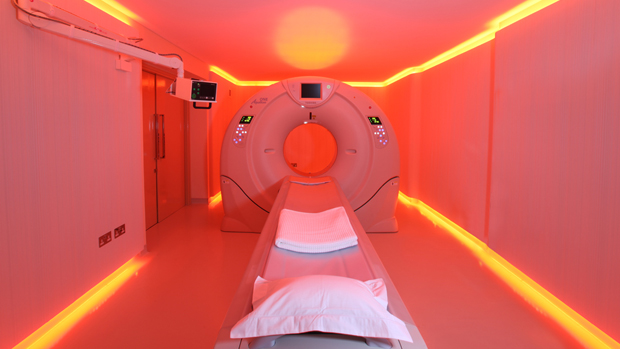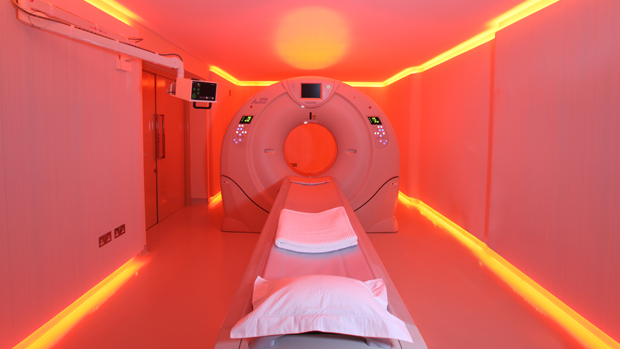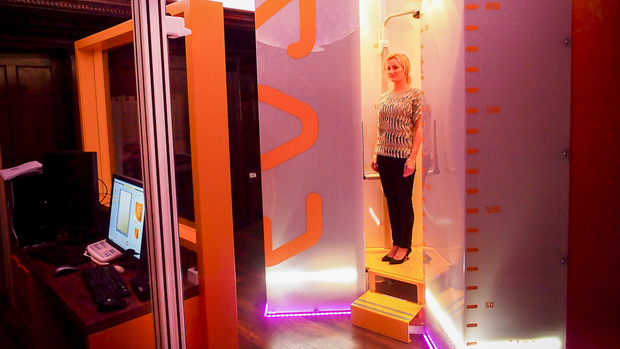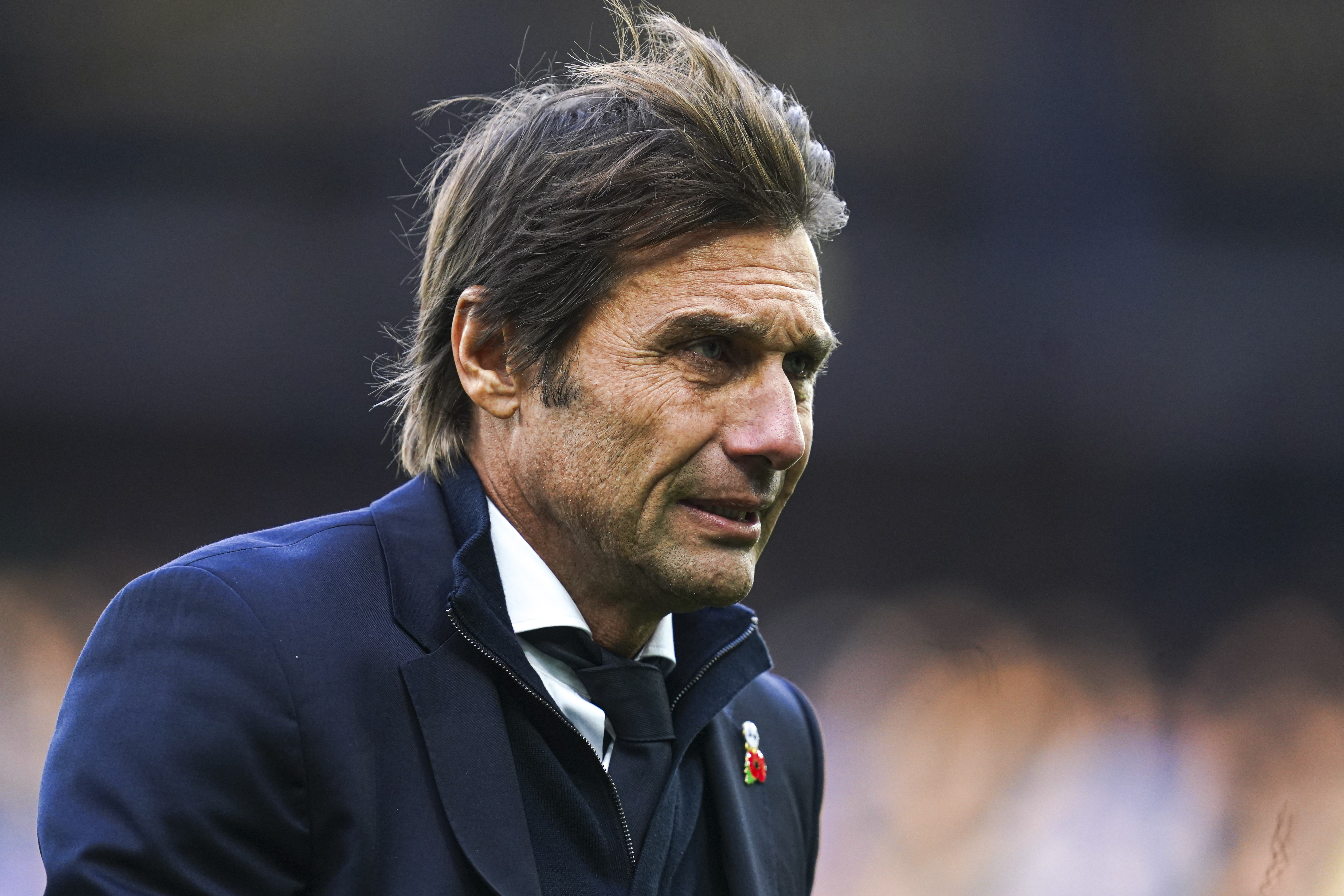Miss playing? Go private
Struggling to shake off an injury? You need a scan. Rather than ride out an NHS waiting list, fast-track your way back to fitness by going private

Get injured on a Sunday morning and you’re left to fend for yourself. Trying to get treatment on the NHS is like trying to negotiate a never-ending obstacle course of waiting lists and consultations. And there’s only so much a physio can do without an x-Ray or an MRI.
Football might not be your livelihood, but it’s your passion. It’s what you live for – even if you do have to pay £10 subs and put laxatives in your team-mate’s water just to get a game.
So, what can you do to speed up your recovery? Go private. Before you start screaming and hiding your wallet, lend us your ear. FFT went to the European Scanning Centre in Harley Street to find out what the average Joe can get for his money….
What, no queues?
Get FourFourTwo Newsletter
The best features, fun and footballing quizzes, straight to your inbox every week.
Queuing, it’s one of the few things us Brits do well. But while we’re sitting there pretending to be patient, we’re actually fantasising about ripping the head off the person in front. To avoid hours, upon days, upon months of waiting and more importantly a bloodbath, the ESC can get you in for a scan in double quick time. “We would normally expect to be able to give someone an appointment within 24 to 48 hours. We are usually able to offer same day appointments if someone needs to be fitted in at short notice,” says, Tim Walker, ESC’s commercial director.
Best equipment for the job
Thankfully the equipment at the ESC doesn’t require a hamster running on wheel. In fact, they’ve got all the gear and plenty of idea. Following a £3 million investment it’s the world’s leading, start-of-the-art musculoskeletal imaging centre. It has the latest CT and MR scanners, two of which use Nobel-Prize winning technology. “These scanners provide better diagnosis. In seeing more accurately, they can get to the point immediately, thus minimising the need for exploratory operations,” Dr Simon Blease, consultant musculoskeletal radiologist, excitedly explains. “Patients get a much better understanding of their problem and how to both deal with it and stop it recurring.”
“Our machines subject the patient to less radiation”
FFT is standing in front of what looks like a super trendy, shower from the future. But it’s not. It’s an EOS dual source linear CT scanner – one of only two in the country. Dr Blease asks FFT to take a step inside the £500,000 piece of kit. Within 20 seconds this correspondent’s entire body has been x-rayed. “By allowing patients to remain standing, scanners produce images which allow the weight of gravity to go through the spine and the joints. Thus replicating our natural posture,” says Dr Blease. “This machine uses less radiation than normal machines, which is great for sportsman who need repeat scans. It gives us all the data we need to reconstruct a 3D image of the body using the same CGI software that’s used for video games.”
“It’s normal to have one leg longer than the other…”
“How bad it is?” FFT asks Dr Blease. “Wow”, he replies. Crowding round a set of computer screens, the doctor talks us through the results of the scan. Turns out FFT has seriously dodgy hips, a spine that’s slightly out of sync and one leg longer than the other – but that’s normal apparently. The Madrid medical staff found that David Beckham is lopsided. “A discrepancy of 1cm is normal, but anything more could put your body under stress. A condition like this might explain why a certain player always turns in a certain direction or kicks the ball with a particular technique," reveals Dr Blease. More alarmingly the scan includes an outline of FFT’s groin. No one looks impressed with two deflated balloons and a chipolata. The doctors aren’t saying it, but it’s clear the size of our problems can be measured here and not in our hips.
“We can see inside your body”
Don’t worry Gunther von Hagens is going to cut your body open. The Aquilion One scanner doesn’t need any blades. It can scan your body in real time so specialists can see how your tissue, muscles and bones are interacting as you move. “The problem with a regular MRI is we can’t see how your body reacts when you’re performing a movement that gives you pain. This is problematic when treating a sportsman or woman. But this machine enables us to do just that – we can see exactly what’s causing a problem as they jump, kick or run.”
Diagnosing an injury is like scoring a goal
If Dr Blease were a football manager he’d be Jurgen Klopp. Charismatic, eccentric and passionate about his work. As he gives FFT the guided tour of the centre his inquisitive urges take over. Every department we visit gets quizzed on their work and he jumps on the controls to look at the scans. Every image gets greeted with an “ooohh” and “aaaahhh”. It’s like he’s hit a last minute winner in the FA Cup final when he diagnoses one patient’s condition. “That’s rheumatoid arthritis!”, he yelps, thrusting his finger towards the screen. “That’s made my day. Case of the month.” These are not the words of sadist, but of a man who genuinely loves to help.
This is just one part of the jigsaw
You’re not going to walk into the ESC with your leg hanging off and walk out, ready to get straight back on the football pitch. This isn’t the place where you find the cure, this is the place that helps you diagnose the problem. As Dr Blease explains, prevention is better than cure. “Getting a scan is just one part of the jigsaw, but our machines can give you a wealth of data than can not only help diagnose an injury, but also spot other deficiencies and weak spots in the body so you can tailor your training methods and rehab to suit your needs. This isn’t guess work – we’re getting inside the body.”
So c’mon how much does it all cost?
Now for the scary part. The cost of a scan ranges from £90 to £1950 or you could sign up for a Bupa healthcare package to cover your hospital bills. Brits begrudge spending money on healthcare, which is strange when you consider that your body is your most valuable asset. “The NHS is under a tremendous amount of strain. It can only afford to treat the critically ill and who are we to argue with that? That should be its focus, but unfortunately everyone else gets pushed to the back of the queue,” explains Dr Blease. “If playing football or any sport is important to your well being and health and you’ve got an injury you can’t seem to shake than it’s got to be worth the investment.”


